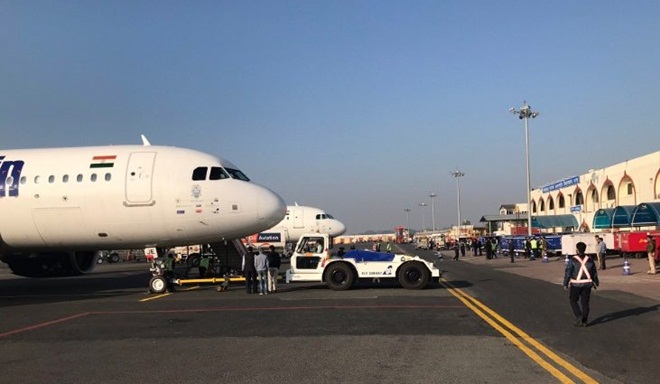TLI Staff
New Delhi: The Modi government this week extended the bidding deadline for Air India by two months to June-end following the advice from interested private parties but wants state-run Airports Authority of India (AAI) to hand out six more airports on public-private-partnership (PPP) basis.
“For generation of more revenue as well as to bring in more efficiency at the airports, the Ministry of Civil Aviation has been asked to expedite the process of handing over of 6 more airports on PPP basis, by commencing the tender process within three months,” Prime Minister Narendra Modi’s office said in a press statement Friday evening.
But given the prevailing economic situation in the wake of Coronavirus outbreak, prospective bidders are likely to significantly understate traffic volume and fly away with lucrative public assets at throwaway prices.
This is one of the key reasons the government is moving slow on its disinvestment plan and waiting for the market sentiments to improve for selling stakes in companies like fuel retailer BPCL and Container Corporation of India.
Not only that banks and financial institutions are unlikely to give infrastructure projects priority in the post-Covid times, albeit in the short and medium term.
“Banks may not be in a position to finance airport upgrade projects. It will take time for normalcy to return,” said aviation sector expert Mark Martin.
Besides, Coronavirus-induced lockdown and their subsequent negative impact on economic activities and market sentiments, investor appetite has been very low for acquiring public sector companies. Not surprisingly, the government’s multiple attempts to sell its entire stake in chopper operator Pawan Hans Helicopters Ltd (PHHL) has failed to get any buyer.
Moreover, the popular sentiments have also turned against privatization as during national crisis public sector units (PSUs) have proved their important role in delivering goods and services on behalf of the state. For instance, state-owned HLL Lifecare swiftly developed test kit for Coronavirus and Air India ferried hundreds of tonnes of medical supplies to the country besides flying back stranded Indians from virus-hit countries.
There has been general perception that PSUs are slow in action but the examples of HLL Lifecare and Air India prove that given a clear mandate they execute the projects very well.
In one of its papers published in 2017, McKinsey had said that agility may be the last word people associate with public-sector institutions but it had been seen that they can indeed be agile, particularly in times of crisis, when employees actually say that it feels better to work for the government.
“Why? Because they get clear directions about how to achieve their mission and enough autonomy to make decisions at the front line; a burning platform for change replaces the cultural aversion to risk taking that’s characteristic of public-sector organizations; and teams work within and across agencies to achieve rapid results,” McKinsey & Company had said in its paper of public sector organizations.

